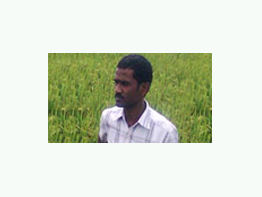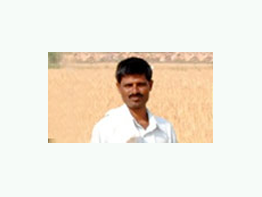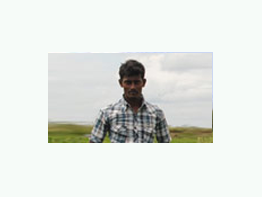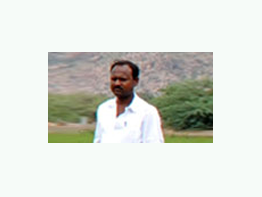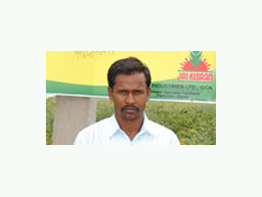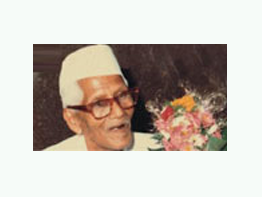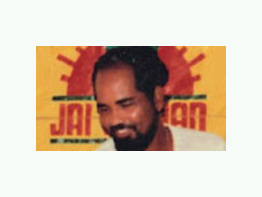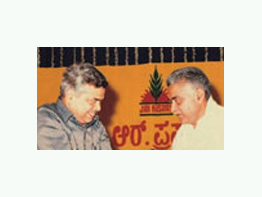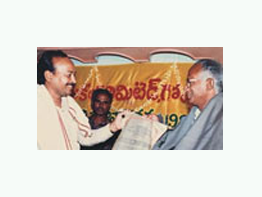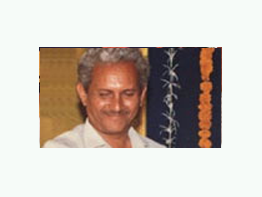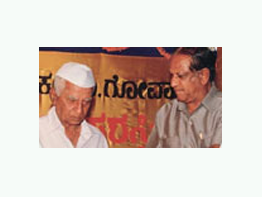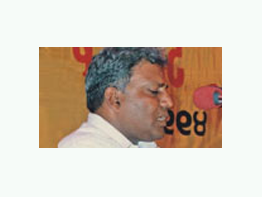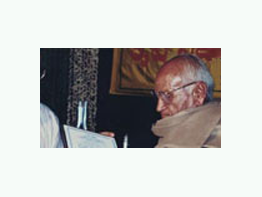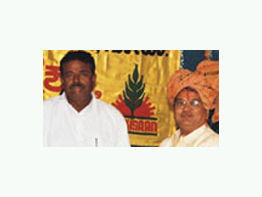Jai Kisaan Success Stories
Mr. B M Shivakumar
The cost benefit ratio achieved by Mr Shiviakumar on using Zuari products is 435:1440 = 1:3.31 That is by investing Rs 1/ the farmer has got an income of Rs 3.31. To achieve this, the Farmer took up to use 2 sprays of Poorna after 25 & 40 days after planting. Boost & Boons prays were done after 55 & 75 days of plating with 5 gm/lit of water. Farmer is a registered Sangam Farmer of the village in Bellary district. He has been cultivating paddy for 8 years under TBP area. Mr Shivakumar, has started sharing his experiences with his fellow farmers of the village & surrounding village.
Mr. G.M. Basavaraj
A registered farmer under Sangam programme for the past 4 years. Mr Basavaraj has been cultivating paddy for 10 years under TBP area. Difference in cost of cultivation is only WSF cost of Rs 545/ ac, where additional profit is Rs 2730/ac. Taken up WSF – Poorna Sprays at 25 & 40 DAP . Boost & Boon at 55 & 70 DAP & Sulpho after 90 DAP. Apart from an increase in yield, the rice produced was of superior quality and was preferred by millers. Mr Basavaraj was extremely happy with the result of the technical service, advice and quality of products from Zuari.
Shri Mallikarjuna Jade
Mr Jade is a registered Sangam farmer of his village. He has been cultivating Paddy since 10 years under TBP area.
On the advice of Zuari’s experts he has taken up the use of WSF sprays. Poorna – 19 sprays at 25 & 40 DAP followed by Boost 52 & Boon 45 sprays at 55 & 75 DAP.
He expressed happiness about the company services for the benefit of the farmers. Mr Jade, is very convinced with the increase in yield & quality of the grains due to WSF usage. He has started advocating WSF to his friends in the village.
Mr. Saranabasava
A registered Sangam farmer of his village, he has been growing paddy since 10 years under TBP command area. He used WSF and the results ensured he produced a good yield. Poorna – 19 - 2 kgs /ac at 25 & 40 DAP at 7 gm /Lit of water. Boost 52 & Boon 45 1 kg each /ac at 55 & 75 dap at 7 gm/Lit of Water. The results of using this was an increase in the number of tillers & less chaffy seeds. The resulting rice shone better and was preferred by millers.
Shri Shivappaa
By incurring additional cost of Rs. 445/ on WSF, farmer got an additional profit of Rs 1820/ac, for which he was very happy. Though he had been cultivating paddy under TBP command area ,had not used WSF earlier.
With rising costs of bulk fertilizers, Mr Shivappa used WSF and sprayed as per the advice of Jai Kissan Sangams. Poorna 19 sprays at 25 & 40 DAP. Boost 52& Boon 45 at 60 & 80 DAP. The result was a uniform crop with, less chaffy seeds. There was also an increased number of tillers in the WSF sprayed plot.
Shri E. Suresh
Cultivating paddy under TBP area for the past 10 years, Mr Suresh, is a registered sangam farmer of the village,
Mr Suresh, took up WSF sprays at the advice of JKs at critical stages of crop growth as under. Poorna 19 at 25 & 40 DAP Boost 52 at 55 DAP & Boon 45 at 70 DAP. He observed more tillers in the WSF sprayed plot. He expressed happiness about the services & quality products of the company.
Shri P. Veeresh
A registered Sangam farmer of the village, Mr Veeresh took up cotton cultivation in an arid land. He has taken up WSF sprays as advised by our Jaikisaan Krishi Salahagar at critical stages of crop growth like 2 sprays of Poorna during vegetative growth stage at 25 & 40 DAS, followed by 2 sprays of Boost 52 at 55 & 70 DAP & 1 spray of Boon 45 at 80 DAP.
In spite of lack of follow up rains during boll formation stage, Mr Veeresh got increased yield in case of WSF sprayed plot. Now he is convinced with the advantage of using WSF and is happy with the service and quality of products that have been offered by Zuari.
Shree N.M. Chamankar
The first winner of Zuari’s Krishi Samrat award, Shri N.M. ‘Kakasaheb’ Chamankar hailed from Ubhadanda, near Vengurla in Sindhudurg district. Shri Chamankar completed his education up to the secondary level at Vengurla. Being an active freedom fighter, he was imprisoned for six months during India’s independence struggle. Post independence, apart from being involved in mango cultivation, he was elected as an MLA (in 1957). Shri Chamankar was a very popular social worker and was affectionately known as Kakasaheb.
Shri Chamankar recognised the potential that the Alphonso mango of the Konkan area possessed. Mangoes of this region are known for their quality and are exported internationally. These mangoes are in high demand and are one of the most expensive mangoes sold both nationally and internationally. These mangoes are grown in the narrow coastal strips of the Ratnagiri and Sindhudurg districts.
Shri Chamankar started experimenting with the Alphonso mango cultivation. He laboured for ten years, perfecting techniques in increasing the yield and quality of the fruits. Chamankar discovered that mangoes did not require a lot of irrigation and focussed on the use of fertilisers. By using complex fertilisers from Zuari, Chamankar was able to boost the yield of his mangoes. As his success grew, Chamankar shared his newfound knowledge with other farmers,contributing to the prosperity of the surrounding farming community as a whole. As his popularity amongst other farmers grew, he came to be known as ‘Amba Samrat’.
It is if for his contributions in improving the quality and yield of mangoes that Shri Chamankar was awarded with the Krishi Samrat award at a function held at Margao Goa on 23rd May 1985.
The impact Shri Chamankar had on agriculture stretches beyond mangoes. He was instrumental in convincing farmers to substitute tree farming for traditional farming. Shri Chamankar passed away at the age of ninety. Until the end, he continued ardently in his search for excellence. A number of farmers in his home town of Vengurla continue to follow the methods that were pioneered by Shri Chamankar.
Shri N. M. Chamankar (1985)
A Jesuit priest, Rev. Fr. Inacio Almedia is known for his contribution of introducing non-traditional crops to Goa. Father Almedia was a lynchpin of the Dudhsagar Krishi Udyog Farm at Shigao in Sanguem Taluka in Goa. The farm was run by the mission society of St Francis Xavier, Pillar.
Father Almedia was considered a pathfinder amongst the farmers of Sanguem, one of the most backward areas of Goa. He realised that crops that were otherwise traditional to Goa could not hope to flourish in this area and alternatives were required. The primary occupation of the residents of the Shigao until then had been shepherding.
In order to improve the agricultural situation in the region Father Almeida called in sugarcane specialists from the Kolhapur region, a district renowned for its profitable and plentiful sugarcane cultivation. Father Almedia also procured reliable planting material from the region. In order to demonstrate how a farmer could cultivate a number of other crops apart from sugarcane, he successfully cultivated crops like Banana, Chikoo, Pineapple, Cashew, Mango, and Rubber.
Under the guidance of father Almedia farmers of the region have adopted a number of progressive scientific farming techniques. Farmers have also been encouraged to adopt dairy farming as a way to supplement the income earned from farming.
Another important area in which Father Almedia set an example was the management of scarce water resources and the use of water distribution systems. Using waters from such systems farmers were able to increase their yield to make agriculture more profitable.
In order to recognise and honour the contributions that father Almedia has made to the farmers of Sanguem, Zuari presented him with a Krishi Samrat award in 1986 at a function conducted at the St Anne’s Parish Hall, Ponda, Goa. The Minister of Agriculture, Goa, Shri Fransico Sardinha, presented the award.
Shri Devangi R. Prafulla Chandra
Shri Prafulla Chandra was a farmer from the village of Hosahalli, in the Shimoga district, Karnataka. Shri Chandra started out his career as a beetel trader and exporter; he went on to make a name as a sugarcane cultivator.
Shri Prafulla Chandra demonstrated to the farming community that sugarcane does not necessarily need replanting year after year. He broke a world record when he kept the same ratoons for 18 years at a stretch without replanting, yet successfully cultivating them.
In doing so, Prafulla Chandra showed how to reduce expenses on procuring new seeds. By using proper irrigation and supplementing this with the use of chemical fertilisers his ratoon crop prospered beyond expectations. Prafulla Chandra is also known for developing a method to process arecanut that reduces the use of firewood. He also implemented a number of labour saving devices.
Zuari honoured Shri Prafulla Chandra with a Krishi Samrat to acknowledge his role as a facilitator in contributing and uplifting the plight of the farmer. The award was bestowed upon him by the agricultural minister of Karnataka Shri R.V. Deshpande, at a ceremony held in Bangalore.
Shri Nekkanti Subba Rao (1988)
Shri Nekkanti Subba Rao hails from the village of Achanta, West Godavari district, the rice bowl of Andhra Pradesh. He is heralded as one of the most progressive farmers in the area. Having completed his schooling, Subba Rao decided to work on his father’s farm. He soon realised the immense potential that farming and agriculture posed for young people.
Subba Rao was included in a team of farmers who were sent to Manila to visit the International Rice Research Institute. These farmers were given a kilogram of high yielding paddy seeds known as IR-64 as a gift. Subba Rao envisioned a revolution from this small gift. On arriving back in Andhra, he started his own project to produce high yield seeds. In a few years, Subba managed to grow enough seeds to be able to start his business.
The high yield rice that Subba produced enabled farmers to improve their crop yields, which in turn acted as a catalyst for other farmers to start their own projects, trying to grow high yield seeds. Shri Subba Rao shared his research and knowledge with other farmers, as a result seed growing flourished as a prosperous business in the State. The fact that IR-64 occupied nearly six lakh hectares of Rabi Paddy in Andhra is a testimonial of the magnitude of Subba’s influence and success.
Zuari bestowed Shri Nekkanti Subba Rao with the Krishi Samrat award to acknowledge his contribution in empowering the farming community at large and his pivotal role in rice cultivation in the Godavari district. Shri Vanasantha Nageshwara Rao the Minister of Agriculture at the time, conferred the award at a function organised in Vijayawada.
Shri Vijaykumar Sampatrao Borade
Shri Vijaykumar Sampatrao Borade was born and brought up in Adgaon district of Aurangabad, Maharashtra. Coming from a family that had been steeped in agriculture and farming, he took to his ancestral profession with zest. Borade was keen in adopting new ideas and techniques for farming. He was willing to do away with tried and tested traditional ways of farming and venture out to try new scientific techniques in farming.
Aurangabad is an area known to receive low and uneven rainfall. Water shortage and soil erosion are problems that occur frequently. In order to negate these problems Shri Borade developed a three-tier system for soil and water conservation. Using this system, he was able to convert an arid drought- prone area into verdant fertile land. Borade’s solution was more cost effective than establishing new dams and irrigation projects.
Shri Borade is also known for having successfully introduced dry land horticulture in villages. Crops cultivated included Ber, Custard Apple, Wood Apple, Gooseberry, and Pomegranate. Borade’s pioneering work spread from his village to other surrounding villages and even across various districts of Maharashtra. The adoption of his new techniques has been responsible for lush green jowar and sugarcane crops in the area.
A leader in rural development, Shri Borade founded the ‘Marathawada Sheti Sahayak Mandal’ in 1960. This is merely one exemplary example of how he has influenced the hearts and minds of the farming community in Maharashtra.
In order to honour and felicitate Shri Borade, Zuari presented him with a Krishi Samrat award at a function held in Mumbai on December 27th 1990. The award was bestowed upon him by Shri Shivajirao Deshmukh who was the Minister of Agriculture at the time.
The government on noting the success of Shri Borade’s techniques in water and soil conservation took a decision in the State Assembly to adopt the technology in a phased manner throughout the state.
Shri Rudragowda Veeranagowda Patil 1991
Shri Vijaykumar Sampatrao Borade was born and brought up in Adgaon district of Aurangabad, Maharashtra. Coming from a family that had been steeped in agriculture and farming, he took to his ancestral profession with zest. Borade was keen in adopting new ideas and techniques for farming. He was willing to do away with tried and tested traditional ways of farming and venture out to try new scientific techniques in farming.
Aurangabad is an area known to receive low and uneven rainfall. Water shortage and soil erosion are problems that occur frequently. In order to negate these problems Shri Borade developed a three-tier system for soil and water conservation. Using this system, he was able to convert an arid drought- prone area into verdant fertile land. Borade’s solution was more cost effective than establishing new dams and irrigation projects.
Shri Borade is also known for having successfully introduced dry land horticulture in villages. Crops cultivated included Ber, Custard Apple, Wood Apple, Gooseberry, and Pomegranate. Borade’s pioneering work spread from his village to other surrounding villages and even across various districts of Maharashtra. The adoption of his new techniques has been responsible for lush green jowar and sugarcane crops in the area.
A leader in rural development, Shri Borade founded the ‘Marathawada Sheti Sahayak Mandal’ in 1960. This is merely one exemplary example of how he has influenced the hearts and minds of the farming community in Maharashtra.
In order to honour and felicitate Shri Borade, Zuari presented him with a Krishi Samrat award at a function held in Mumbai on December 27th 1990. The award was bestowed upon him by Shri Shivajirao Deshmukh who was the Minister of Agriculture at the time.
The government on noting the success of Shri Borade’s techniques in water and soil conservation took a decision in the State Assembly to adopt the technology in a phased manner throughout the state.
Shri Ganpatrao Appasaheb Patil – 1994
Shri Ganpatrao Patil was a famed progressive farmer from Duttanager, Tal Shirol. Shri Patil identified that grape growing was a more profitable venture as compared to growing sugarcane, chillies, jowar, and other traditional crops. It was for this reason that he started his own vineyard a few miles from Kolhapur.
Experts had told Shri Patil that grapes could not be grown in the region. This did not deter Shri Patil. Instead, he was galvanised into action. He found a fallow piece of land located at the outskirts of the village. The owner of the land leased out the land, as he himself was unable to cultivate the land. Shri Patil spent a considerable amount of money in removing the rocks from the land to get it ready for farming. Once done, he needed a supply of water to the farm. Shri Patil came up with an ingenious idea of transporting water from a far off water source. He built a concrete reservoir to irrigate his farm, a novel concept at the time. Once ready, he planted the best variety of seedless grapes he could find. It took a mere 18 months for his plants to bear fruit. His efforts paid off, as he was able to achieve yields of 24 tonnes per acre of international quality grapes.
Shri Patil’s contributions did not stop with his achievement in water management and grape growing. He was also instrumental in profitably growing Mangoes, Chikoo and Pomegranates in the surrounding area. Other crops that he grew profitably included Sugarcane, Paddy, Wheat Bengalgram, Groundnut and Soyabean.
Local farmers looked up to Patil as a mentor. He looked after matters pertaining to financial and marketing affairs of the rural area. His pioneering techniques and his work amongst farmers lead Zuari to bestow a Krishi Samrat award upon him. He was bestowed with the award in the presence of 6000 farmers at a ceremony held on 13th April 1994. The award was presented by Shri H.S. Bawa, Zuari’s Executive President.
Shri Koduru Dasartharami Reddy
Shri Koduru Dasartharami Reddy was a farmer from the remote village of Pudiparthy in the Nellore district of Andhra Pradesh. Shri Reddy demonstrated that by using high yield seed varieties, water management, and fertilisers, paddy cultivation can be highly profitable. Shri Reddy’s methods of cultivation became a model that was applied beyond paddy cultivation, covering social forestry, horticulture, biogas generation and paddy-cum fish culture.
Called affectionately as Vanapandit by villagers in recognition for his work in social forestry, Reddy believed planting revenue-generating trees could only be a model that proved profitable in the long run. Trees, Reddy noted could not be severely impacted by droughts and other external factors.
Shri Reddy started growing coconuts in a large scale, something never done before in the region. Reddy’s village was part of the rice belt. Rice being the primary cash crop, farmers grew fruits only for consumption by their families. Shri Reddy with his experiments and drive to grow non-traditional crops on a large scale changed everything. He started growing other fruits and crops for sale such as Mango, Custard Apple, Cashew Trees, Tamarind, Ber and Gooseberry trees, profitably.
One of Reddy’s successful experiments was to use paddy fields for breeding fish, a technique used in the Philippines. Reddy harnessed rainwater for optimal use in this project. Shri Reddy identified the demand of catfish in the American market. He found a customer, procured spawn, and started cultivating the fish for export.
Shri Reddy was both an innovator and a motivator. He instigated fellow farmers to adopt practices to improve their yields. He freely shared his techniques and even gave several talks on All India Radio and Doordashan spreading the message of integrated agriculture to other farmers.
Zuari honoured Shri Reddy for his astounding achievements in the field of integrated agriculture. The award was presented on 23rd March at a community hall in Gudur Andhra Pradesh. Shri Gopal Srinivasan the Executive President of Zuari, at the time, presented the award.
Shri Pandappa Hanumappa Golabhavi (Chowda Reddy)
Shri Pandappa Hanumappa Golabhavi was by no means your every day average farmer. Born in the small village of Ranjanagi, Bagalkot district, Karnataka, Shri Golabhavi came from an undivided Hindu family compromising of 35 members. After completing his early education at village level he went on to obtain a BA from Jamkhandi. On its completion, he attempted to do a law degree, but due to unavoidable family issues was not able to complete it.
Shri Golabhavi was known for his contribution in adopting scientific agricultural practices and modern water management techniques. One of the pinnacles of his success was the practices that he adopted in improving high soil fertility and improving sugarcane yield. His practices served as an inspiration to other farmers throughout the North Karnataka region and became a widely adopted model.
Shri Reddy is most well known for the task of liberating farmers from the vagaries of rain-fed agriculture. Shri Reddy was one of the first farmers to harness waters of the nearby Ghataprabha River through an innovative lift irrigation technique. Reddy selflessly devoted time and energy to the Ranjanagi Yatha Niravari project, a first of its kind in the area. The project improved the prosperity of the entire village and proved to be an exemplary example for villages around in adopting similar techniques.
Another notable contribution made by Shri Golabhavi was adopting mix-cropping technique in sugar cane fields to increase productivity. His innovative practices allowed him to harvest high yield crops producing 368MT of sugarcane per hectare.
In order to felicitate Shri Golabhavi for contributions to agricultural practices, whose influence has spread beyond the confine of his native district, Zuari awarded him with a Krishi Samrat award. Shri Baswaraj Horatti who was Minister of Science & Technology at the time bestowed the award.
Shri Vishwasrao Dattatraya Kachare
riginally, from the village of Telengwadi in the Sholapur district of Maharastra, Shri Kachare started work as a farm labourer at the age of 16, on completing his primary and secondary schooling. Kachare funded his schooling by the ‘Earn While You Learn’ scheme, a testimonial of how industrious he was, even at an early age.
Shri Kachare started out initially with a modest dairy farm, having a buffalo and a few crossbred cows. Using the profits earned through this venture, he purchased 27 acres of barren land. He dug a well in the land and using water from this grew 1000 pomegranate trees, using an earthen-pot drip irrigation system. Kachare also went on to grow a variety of hybrid tomatoes using a hand watering technique.
From 1985 to 1992, he purchased fallow and wasteland using his earnings. This, he used to grow rain-fed crops like pomegranate and ber. Shri Kachare also successfully raised an intercrop of tomato. These crops provided him with substantial financial income. In 1992, the area experienced a severe famine and his orchards started dying. To solve this problem Shri Kachare devised a lift irrigation system to transport water from a government irrigation tank at Ashti some 110 kilometres away from his farm.
By using water gained from this system he was able to convert his piece of fallow land into a flourishing orchard boasting of over 1,10,00 pomegranate trees and 40,000 farm border trees including Silver Oak and Casuarinas. Today the 4000 tonnes of pomegranates that he produces is marketed both domestically and internationally.
Shri Kachare’s farm has become a model farm, attracting a variety of visitors who are eager to learn his techniques. Kachare’s groundbreaking techniques have helped create employment for farmers in drought prone areas of Maharastra.
In recognition of his contribution to empowering farmers and acting as a catalyst to agriculture in Maharashtra, Zuari awarded Shri Kachare with a Krishi Samrat. The award was presented at a ceremony held in Sholapur on the 7th of July 2007 by the Agricultural Minister of Maharashtra, Shri Balasaheb Thorat.
Shri Shivanna B. Chowdihal
Bijapur District in Karnataka is known for dryland agriculture. Situated in the rain-shadow region of Western ghats, the district receives a meagre annual rainfall of 400-500 mm. Until nineteen eighties, Sorghum, Maize, Groundnut, Cotton, Sugarcane were the major crops grown in the area but the farmers’ income was negligible. Shri Shivanna Chowdihal, a farmer from Indi Taluka of Bjapur district, with his industrious approach towards agriculture, helped in changing the agricultural scenario in the region by introducing horticultural crops and helping fellow farmers to adopt commercial farming techniques, Born in mid thirties, and hailing from Tadwalga village of Indi Taluka, Shri Shivanna Chowdihal migrated to Solapur of Maharashtra in early sixties to earn his livelihood. He started a tea powder business and continued the same till 1980. Whilst in Solapur, he was introduced to Dr. Ranade of Ranade Micronutrients, Pune, by one of his friends. On inspiration from Dr. Ranade, Shri Chowdihal ventured into agriculture.
Shri Chowdihal returned to his native Tadwalga village in early eighties and started cultivation of Grapes, Lemon and Ber in his family land of 17 acres. He was the pioneer in introducing theses crops in the region. To overcome the scarcity of water, he dug a large number of bore wells and open wells for irrigating his crops. Taking a cue from Shri Chowdihal, many farmers in surrounding areas of Bijapur district started cultivating of horticultural crops, earning good income from newly introduced crops.
Later, due to depletion of water table, Shri Chowdihal moved to village Kadlewad in Sindagi Taluka of Bijapur. Starting with cultivation of Grapes in 16 acres, he went on adding more land to cultivate Pomegranate, Ber, Sugarcane and Brinjal as well.
Presently, he owns ‘Siddeshwara Horticultural Farm’ spread over 200 acres. He has adopted high tech farming techniques such as drip irrigation, fertigation, use of herbicides etc. He grows Grapes in 75 acres, Watermelon & Muskmelon in 10 acres each, getting high yields, upto 20 MT per acre. He also cultivates Tur in over fifty acres of land, harvesting an good yields. To provide assured irrigation to his 200 acres farm, he has constructed a massive well of 115 feet diameter and 60 feet depth. He provides employment to over hundred farm labourers on regular basis.
Shri Chowdiha is the mentor of farmers in northern Karnataka for learning high tech agriculture. His herculean efforts have resulted in inspiring his fellow farmers to take up commercial cultivation of Grapes, Lemon, Pomegranate etc and Bijapur district is fast becoming a major hub of horticultural crops for domestic as well as export markets. Over thousand students from University of Agricultural Sciences, Dharwad visit his farm every year to learn new techniques.
In recognition of Shri Chowdihal’s outstanding efforts in changing the profile of agriculture in Bijapur District and ushering in an era of high-tech farming in the region, Zuari conferred the 2009 ‘Jaikisaan Krishi Samrat’ award on him. The award is being presented at the hands of Honourable Minister for Minor Irrigation, Planning and Statistics, Karnataka, at the special function organized at Bijapur on 2nd February 2010.




